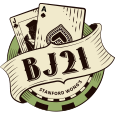Lots of reasons
Playing two hands is commonly used to disguise the bet spread between your minimum bet and the bet you make when the count is high. Consider if you have been making $10 (two red chip) minimum bets. The count slowly climbs, and you find yourself making your max bet of $120. The pit boss glances over (when the dealer hollers 'cheques play!') and notices what is normally a $10 bettor with a huge pile of 24 red chips in the circle. What the hell is going on here?, he thinks. Perhaps you wouldn't have raised the pit's radar with two bets of $85. (Three greens, capped off with two reds, a slightly bigger pile, but not as obvious.) No cheques play call, and mathematically the same as betting one hand of $120.
As long as the ratio of your low bet to your high bet isn't too far out of line, then spreading to multiple hands in negative counts can also be a good idea. If I am normally spreading $25 to $200 in a double deck game, but the pit doesn't mind me spreading to three hands of $10 in a negative count, then the extra $5 I am betting is worth the extra cards I am eating (especially if the pit starts comping me at an average bet X 3 hands rate).
Another situation for spreading to multiple hands. Suppose you are at a table with 3 other players. You know a blackjack is going to come out on the next round, you just don't know where. The odds of you getting the blackjack are 20% (you, 3 other players, and the dealer.= 1/5). If you would have spread to two hands, the odds of you getting the blackjack have increased over 50% to a 33% chance. (your 2 hands, 3 other players, and the dealer = 2/6).
You can view a high positive count in the same light. You know tens and aces are more likely to come out, by spreading to multiple hands, you are more likely to get the good cards rather than the other players. This is a balancing act. You have to keep in mind that by playing multiple hands, you are using more cards, and therefore will not get as many positive advantage rounds dealt to you.
In some single deck games the opposite is true. The dealer will deal a fixed number of rounds to you playing a single hand heads up, and by moving to 2 hands against the dealer, you will actually get dealt deeper into the deck.
In "Blackjack Attack" by Don Schlesinger there is an analysis of optimal points to spread to multiple hands in positive counts based on the number of other players at the table.
I can think of no reason for a BS player to play mulitple hands, unless he is operating on some other type of inside information.










